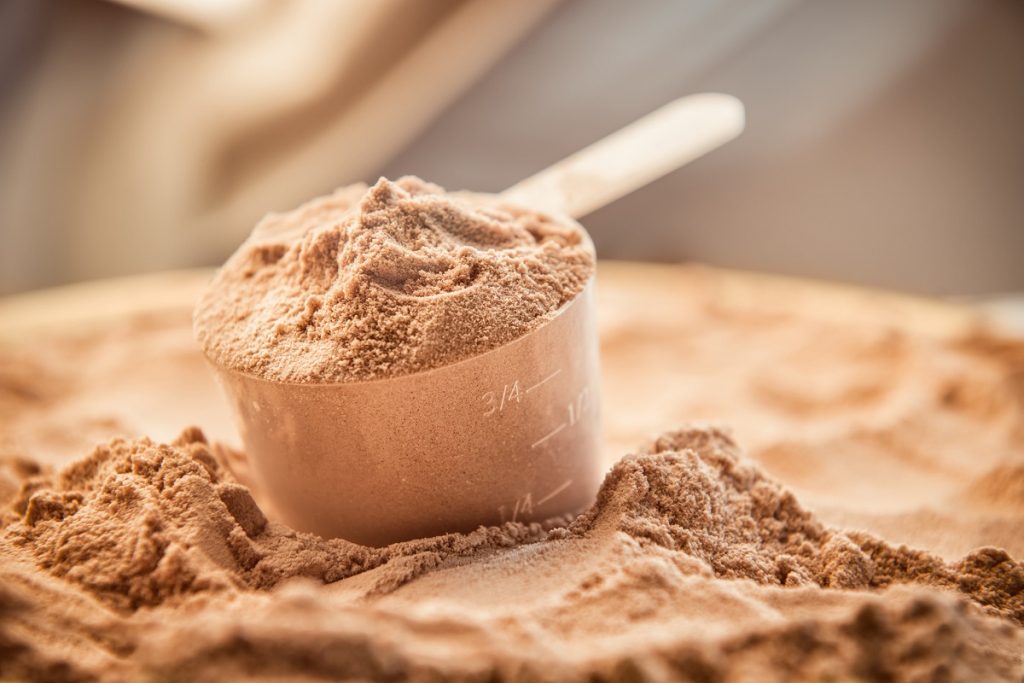In today’s environment, everyone is rushing to consume the appropriate diet with the perfect amount of nutrients. Many people wish to be in shape and eat well from an early age in order to avoid developing lifestyle disorders. Protein is one of the most important nutrients for our bodies to stay active and fight illnesses. By improving your metabolism, the right quantity of protein in your body can help you live a healthier life.
And since most people pay little or no attention to their daily diet, or consume the recommended quantity of protein, firms have supplements to assist you in your protein demands.
Whey protein is the ultimate metabolism booster for you. It’ll build your strength, and boost antioxidant levels in your body. Continue reading to learn more.
A quick overview of whey protein
Whey protein is a liquid by-product that occurs during the cheese-making process. It’s thus utilized to create protein supplements, usually sold in powder form.
Whey protein has a high number of amino acids. It aids in providing the body with the essential amount of protein that are required to boost the body’s metabolism and burn fat. You need it to acquire strength, and boost antioxidant levels.

There are many varieties of whey proteins on the market that are suitable for different body types. There are also some whey protein products available today. But it’s critical to select the finest whey protein to provide your body with the proper protein! Tag along for all you need to know about whey protein!
Benefits, Nutritional Facts, and Side Effects of Whey Protein
What are Whey Protein Nutritional Facts?
- The average whey protein powder contains 113 calories per scoop (approx 32 g), with 4.5 percent of those calories coming from fat.
- Total fat content is 0.5 g, including 0.3 g of saturated fat. There are no trans fats in this product.
- Each of the polyunsaturated and monounsaturated fats has 0.1 g.
- Cholesterol is 5.1 mg, which corresponds to 2% of your daily needs.
- The sodium content is 50 mg, which accounts for 2% of your daily dietary value.
- Potassium level is 160 mg, therefore a scoop of whey protein powder will provide you with 5% of your daily potassium need.
- The overall carbohydrate content is 2 g, with dietary fiber accounting for 1%.
- The amount of protein in this dish is 25 g. The measured amount of whey protein powder contains 2 percent iron and 12 percent calcium.
Whey Protein Proven Health Benefits
They are;
- It aids in increasing our body’s protein and BCAA intake – Amino acids are the building blocks of proteins. Our bodies create a portion of our amino acid requirements, the balance must be obtained from the foods we eat.

- Essential amino acids are amino acids that our bodies obtain from external dietary sources. Nine necessary amino acids are in whey protein. Furthermore, they’re high in essential branched-chain amino acids (BCAAs) like leucine; for growth and cysteine; for glutathione production, a cellular antioxidant.
- Whey protein boosts the human breast milk.
- It provides to neonates, contains 60% whey, then 20% whey in cow’s milk.
- It increases muscle mass, and strength by generating anabolic hormones like insulin.
- Furthermore, it contains protein and amino acids, which promotes faster muscular building.
- Protects children against eczema and allergic reactions
- Makes you feel fuller, so you eat less.
- Assists in Exercise Recovery and boostsathletic performance.
- Helps to Lower Cholesterol (total and LDL cholesterol).
- Whey protein powder assists in Blood Pressure Control of those with hypertension and acts as a barrier against the development of potentially deadly cardiac problems.
Some Whey Protein Side Effects
Overconsumption causes;
- Bloating, diarrhea, and hyperactive bowel movements.
- Nausea, headaches, thirst, cramps, exhaustion, and a loss of appetite.
Things to consider before getting started on whey protein
- Talk to your doctor; if you’ve got a family history of gout.
- Consider Cardiovascular Risk; If you’ve got heart problems, ensure you drink the recommended quantity. More of it could cause heart arrhythmias, cardiac arrest, and loss of all cardiac functions.
- Consider Osteoporosis; a condition of brittle of the bones, which is a mineral imbalance in your bones due to excessive use. Bone density will be depleted and cause osteoporosis.
- Check if there’s increase in Blood Acidity, Ketosis, facial Parts Swelling and Wheezing or an Unbalanced Nutritional Diet issue.
Let’s look at this!
Whey Protein Types
The technique of processing this product determines the differences between all types and the nutritional information. Let’s get started in the types of whey protein.
- Whey Protein Hydrolysate
Whey that has been pre-digested is known as hydrolysate or hydrolyzed whey. It is absorbed more quickly than the other types. Whey that has been hydrolyzed causes a 28-43 percent higher insulin increase than whey that has been isolated.
- Whey Protein Isolate
Isolate whey protein has a protein content of 90% and occasionally even higher. It has a lower fat and lactose content, as well as fewer useful elements, than whey protein concentrate.

- Whey Protein Concentrate
Whey protein concentrate has a protein content of 70-80 percent. Lactose and lipids are also present. Overall, it’s the tastiest of all the whey protein options.
Which whey protein is right for you? Choose one that suits you!
- To increase muscle mass? Some people use whey protein to increase muscle mass. The majority of athletes, gym trainers, and gym lovers use this protein supplement to grow muscle and reduce fat at the same time. It aids in the satiation of hunger pangs.
- To increase weight? Protein powder supplements can be used to help people gain weight. As you become ol This might pave the way for a slew of ailments. Whey protein for weight gain aids in the maintenance of a healthy weight by lowering body fat.
- For diabetics? If you have diabetes, you must buy whey protein that is tailored to your specific needs. Whey protein is also claimed to be useful in the treatment of type 2 diabetes.
- For important hair growth? Protein is necessary for strong and healthy hair.
FAQs (Frequently Asked Questions)
- What is Whey protein?
It’s a kind of protein that comes from cow’s milk. During the manufacture of cheese from milk, a combination of proteins is extracted from whey, which is whey protein.
- Is it flavoured artificially?
Whey protein powder is generally flavoured with other ingredients because it doesn’t taste particularly good on its own. If you’re thinking about buying whey protein powder, check sure it’s free of added sugar.
- What can i gain from whey protein powder?
Its protein composition may readily supplement 25-50 g of your daily protein need. It’s a simple method for fitness buffs, weight-loss aspirants, and anyone who don’t get enough protein in their diet to get it.
- Why flavoured whey protein?
You may use it as a meal replacement or add it to protein bars and drinks. It’s easily digested by the majority of people.
Wrapping up!
Whey protein powder is very healthy and effective. Its and other supplements are also the best way to boost your protein content in your regular diet. It’s a stellar source of protein which is seamlessly absorbed by our body.
If you’re going to get started in whey protein, go for a concentrate which is the cheapest. It’s not only cheap, but contains the most naturally occurring components in whey. You can use this whey protein powder for weight gain if you wish!
However, if you are strict about the carbs and fats you consume to isolate protein powder for weight loss or hydrolysate form may be a better option for you. Most of the research done on protein powder for weight gain is carried out in isolate form.
The hydrolysate form offers the best protein powder with high digestibility. This makes it the whey protein source for the medically ill and infantile. They also have the least allergenic potential, making it safe for use.



